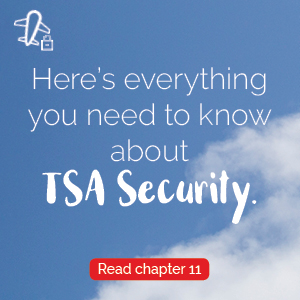This week, I had the opportunity to attend the annual gathering of the Disability and Multicultural Division (DMD), within the Office of Civil Rights & Liberties, Ombudsman and Traveler Engagement. This is the group of government workers who are responsible for ensuring that Transportation Security Administration’s (TSA) screening policies do not discriminate against travelers on the basis of race, color, national origin, gender, religion, disability, or sexual orientation. Let’s call it a meeting about TSA in depth.
Now, that is a mouthful, but this office is at work behind the security checkpoints to make sure that every citizen and flier gets a fair shake when going through security. This was the 14th annual TSA Coalition Conference. It included presentations by federal partners and members of the DMD.

A TSA in-depth panel on the airport experience brought speakers from TSA, Department of Transportation (DT), Federal Aviation Administration (FAA), Customs and Border Protection (CBP) and the Department of Homeland Security (DHS) Civil Rights and Civil Liberties division. This discussion showed the extent of different federal offices involved in airport security. It is not only TSA that has responsibility for airport security and the passenger experience.
Elizabeth Sanglier, from TSA Dulles Airport, spoke about their group’s work to help those with disabilities through the security process and through the entire airport experience from parking to check-in and then from getting through security to boarding the aircraft. She explained that TSA at different airports has different abilities and programs to assist those who have special needs.
Anne Hammond, from DOT’s enforcement division, spoke about their work handling complaints from the Air Carriers Access Act and how DOT works to enforce that law at the airport level as well as post incident. DOT works to enforce rules for everything from service animal relief areas to inflight entertainment accessibility.
Brooke Aiken, from Customs and Border Protection, discussed the work involved in making airport kiosks for programs such as the Global Entry Program accessible to the handicapped. She described the new kiosks that are now in place to help the disabled use the Global Entry systems.
On another TSA in-depth panel discussion, Katherine Brown, a young IT specialist from TSA’s Office of Public and Strategic Affairs, discussed the social media outreach, AskTSA, which her team is creating. Her team works with Twitter (@AskTSA) and on Facebook (fb.com/askTSA) to answer questions and solve problems in real time. Some examples provided dealt with TSA PreCheck questions such as lost computers left at checkpoints, handling of medical devices such as syringes and medication, and lost ID documents. Her office has handled more than 65,000 messages and is growing dramatically. This is a way to contact TSA directly and often gets immediate help.
Michelle Cartagena, from the Customer Service Program, spoke about the efforts of the TSA Cares team. Her team has already helped more than 140,000 travelers and continues to train TSA officers to help with disabled travelers, as well as with multicultural passengers ranging from Sikhs to Buddhists, and from orthodox religious sects to dealing with sacred items. TSA Cares can be contacted by the public for assistance in getting through airport security by calling 855-787-2227 or emailing [email protected].
Deborah Moore, manager of the Redress Program, revealed that her office has set up a one stop shop to handle TSA problems. When the issues require input by government agencies other than TSA, queries can take anywhere from 45-50 days to be settled. Issues that only require TSA decisions are normally handled in about a week.
One general comment that was reflected during the entire day was that many of these programs are invisible to the general public. Travelers United noted that the Secretary of Transportation has the power to require public service advertisements to be displayed at airports to educate the public. However, airports have fought this effort based on a belief that their advertising revenues might be impacted and airlines have expressed displeasure in having an informed nation of travelers. However, all stakeholders appeared to agree about the need for better education about these programs.
The work and bureaucracy involved in handling complaints and making the airport security process accessible and fair for all travelers is mind-boggling. This annual gathering of stakeholders highlights the work that goes on day after day by stakeholders, TSA offices and other government agencies to allow the public to travel securely every day to every corner of our country.

Charlie Leocha is the President of Travelers United. He has been working in Washington, DC, for the past 14 years with Congress, the Department of Transportation, and industry stakeholders on travel issues. He was the first consumer representative to the Advisory Committee for Aviation Consumer Protections appointed by the Secretary of Transportation from 2012 through 2018.



